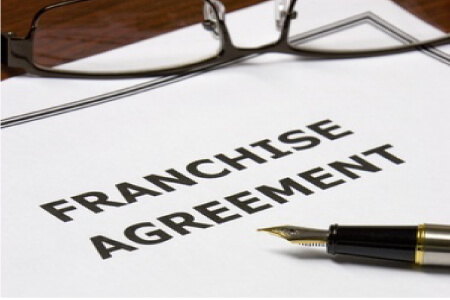Franchisor Services:
Franchisee Services:
Popular Franchise Videos
FAQ
Reidel Law Firm specializes in franchise law with a focus on transparency, efficiency, and personalized service. Our flat-fee packages and deep experience in franchise law make us uniquely suited to guide business owners through the franchising process without unexpected costs or delays. Specifically our values guide our business daily:
Direct Communication – At Reidel Law Firm, we value human touch. Our clients communicate directly with experts, ensuring timely, clear, and efficient counsel. Say goodbye to robotic menus and layers of intermediaries.
Transparent Pricing – With our flat-fee structure, you never have to worry about unexpected bills. We believe in transparent pricing that’s based on the scope and complexity of your project, ensuring value at every step.
Reliability – We pride ourselves on delivering on our promises. Our realistic timelines ensure that we not only meet but often exceed expectations, solidifying our reputation as a dependable legal partner.
While we are based in Texas, Reidel Law Firm serves franchise industry clients across the U.S. We have extensive knowledge of both federal and multi-state franchise laws and can help you with franchise matters nationwide.
Yes, Reidel Law Firm assists clients looking to expand internationally. We provide guidance on cross-border franchise agreements, IP protection, and compliance with international franchise regulations.
We are well-versed in the regulations of all franchise registration states, including Texas, Florida, Illinois, New York, California, and others. Our team will guide you through the compliance process, ensuring your franchise meets the requirements in any state you wish to operate.
Yes, in addition to franchise law, Reidel Law Firm provides services in Texas business law, international trade law, and other areas relevant to business growth. Our attorneys are experienced in supporting the diverse legal needs of business owners.
You’ll work directly with a dedicated franchise attorney who will be your primary point of contact, ensuring you receive consistent, personalized attention. Our team is always available to answer questions and provide updates throughout the process.
Reidel Law Firm has 10+ years of extensive experience helping clients in the franchise industry. Our attorneys are well-versed in federal and state franchising laws and have successfully guided clients across various industries through the complexities of franchising.
We provide a thorough review of Franchise Disclosure Documents (FDDs), franchise agreements, and other essential documents to help you fully understand the terms, costs, and obligations involved. Our team also identifies red flags and assesses the risks, ensuring you make an informed decision.
An FDD review involves analyzing the disclosure document to ensure it aligns with your financial and business goals. This review helps uncover any hidden fees, restrictions, or legal obligations and assesses the franchisor’s support, financial health, and overall business model.
Risks include limitations on operational control, potential for high ongoing fees, restrictions on selling or transferring the business, and brand reputation impacts. Our team helps identify and address these risks through detailed document reviews and negotiations with the franchisor.
Our FDD and franchise agreement review process typically wraps up within 5 business days, depending on the complexity of the documents and your timeline. We aim to be thorough while meeting your timing needs, especially if you’re working with deadlines.
We offer a free franchise readiness assessment to evaluate your business’s potential for franchising. This assessment will help determine if your current operations, brand, and business model are well-suited for franchising and identify any areas to strengthen before moving forward.
The FDD is a legally required document that provides prospective franchisees with essential information about your franchise system, including financials, fees, obligations, and franchisee support. It’s a critical component of franchising compliance in the U.S., and we help you draft, review, and file it as needed.
The process timeline can vary based on your business’s current structure and any state-specific regulations, but generally, the franchise startup process takes about 3-6 months. Our team will guide you through each step to streamline and expedite the process wherever possible.
Once you start franchising, you’ll need to maintain compliance with federal and state regulations, including annual updates to your FDD and adherence to franchise sales practices. Our team offers ongoing counsel to help you stay compliant as your franchise network grows.
Franchise Resources

Franchise Success Strategies Course
An empowering micro course meticulously designed by Reidel Law Firm to guide you through the intricate process of franchise agreement negotiation. Whether you’re a client of our firm or an aspiring franchisee seeking knowledge and expertise, this course is your gateway to mastering the art of negotiation in the franchise world.

Franchise Essentials Podcast
Coming Soon!

Franchise Digest Podcast
Coming Soon!
Our Latest Franchise Articles

Franchise Agreement Negotiation: Essential Strategies for Success

Navigating Fads in Franchising: What to Watch Out For

Top 5 Hidden Clauses in a Franchise Agreement to Watch Out For

Franchise Non-Compete Clause: Understanding Legal Requirements and Best Practices

Essential Guide to Understanding Franchise Laws and Their Impact

Top-Ranked Franchise Experts: The Best Franchise Lawyers for Your Business Needs

How to Conduct Due Diligence When Buying a Franchise

What to Know Before Buying a Franchise

How Negotiable is a Franchise Agreement?


